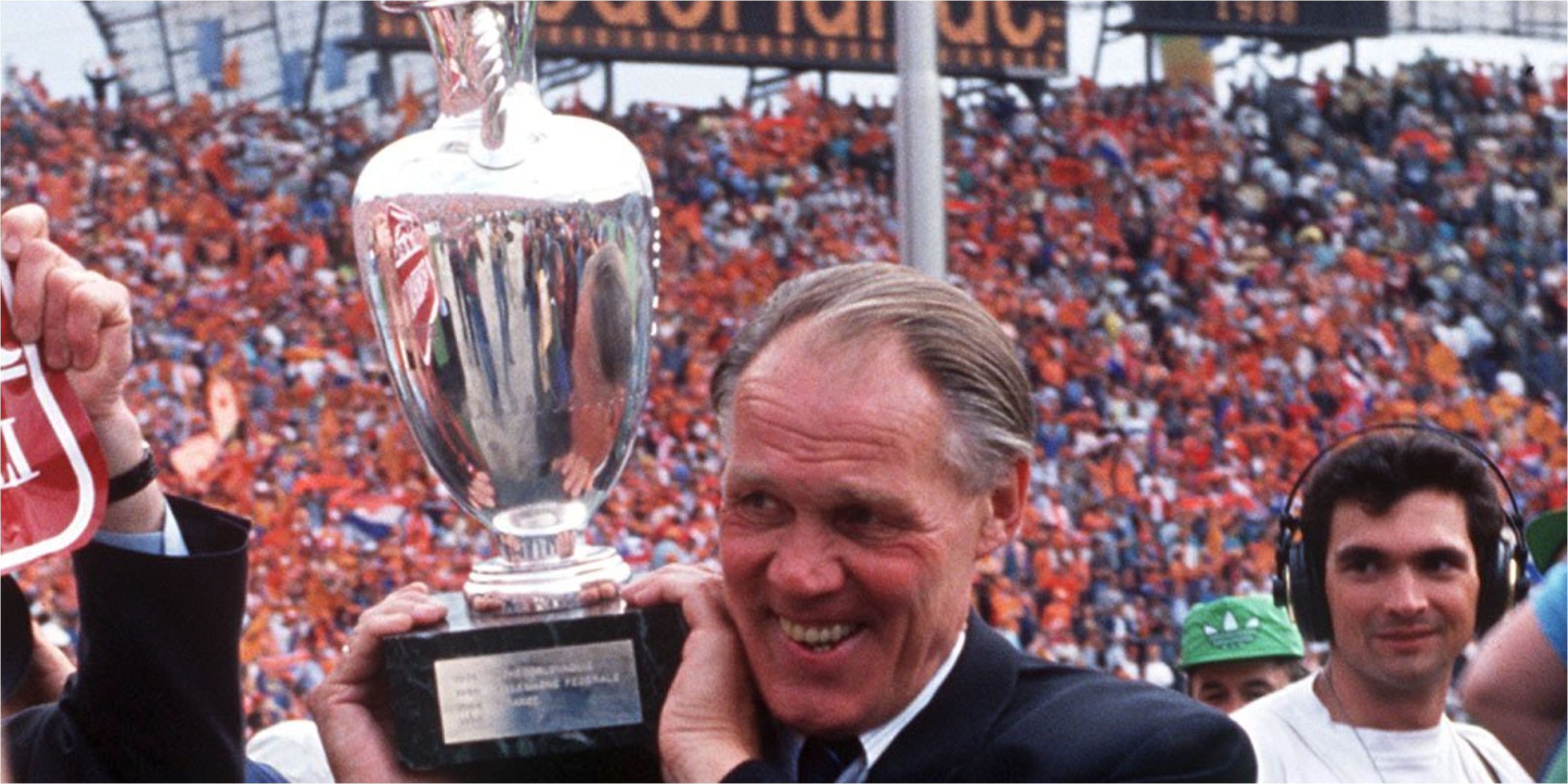
Total Football revolutionised the sport in the 1970s. The idea came from players not having a set position, instead switching and roaming across the pitch. Ajax dominated with their Total Football philosophy, winning eight Eredivisie titles and three European Cups under manager Rinus Michels.
Football tactics are consistently changing. The sport is evolving, with the best managers in the world looking to find the next ground-breaking system which could change the course of history. While football is now about high-pressing and possession-based football, that never used to be the case.
In the 1970s, Total Football revolutionised the sport. It was an attacking style of playing football in which all the players in a team except the goalkeeper could change positions during the game. To the outsiders, that might sound chaotic, but it worked to perfection during a sport-defining era.
With the system continually inspiring teams around the world, we have decided to outline the history of Total Football – and how one legendary Dutchman became a part of footballing immortality with a system that absolutely everyone adored. We take a look at why the Dutch maestro was so good at playing the beautiful game. What was Total Football With the system focusing on freedom and movement, players were always switching across the pitch.
Any player who did move out of position was replaced by someone else, meaning the team's intended organisational structure was always kept. Theoretically, a defender could move upfront and an attacker could move into the backline. The system was born by Ajax in the 1970s under legendary manager, Rinus Michels.
He developed the system after the introduction of one of the greatest players of all time , Johan Cruyff, who was seen as the most important component of the system. He was encouraged to roam around, exploiting the opposition's weaknesses with his creativity. Cruyff, under the guidance of Michel, dominated the sport and Ajax became known as one of the greatest club sides of all time .
They won eight Eredivisie titles, three European Cups and one Intercontinental Cup. The rise of Total Football and its attacking prowess was also linked with the death of Catenaccio, which was an Italian system reliant heavily on defence in the 1960s. GIVEMESPORT Key Statistic: During the 1971/72 season, Ajax scored 104 goals and conceded just 20 in the league.
They won the title by eight points. Former Ajax defender Barry Hulshoff described the system as "[the thing] we discussed the whole time. Cruyff always talked about where to run and where to stand, and when not to move.
" For all the success, Total Football was not unstoppable. The system failed in the 1974 World Cup final, with the Netherlands, managed by Michels, losing 2-1 to West Germany. The clever and well-designed marking by Berti Vogts stopped Cruyff from dictating the match, showing defence can sometimes come out on top.
Alongside this, some credit teams such as the Austrian Wunderteam of the 1930s or the Golden Team of Hungary of the 1950s for having played in a similar style to Total Football. They played high-pressing and fluid football, but it's still unclear if this can be linked directly to Total Football; they had less success than Ajax's team as well. From Louis van Gaal to Johan Cruyff, the Netherlands have produced a host of amazing coaches.
How did Total Football Shape the Sport While Total Football is not as common in the modern-day, it inspired some of the greatest tactics ever. Most notably, the high-pressing systems used by Liverpool and Manchester City under Jurgen Klopp and Pep Guardiola respectively took ideas from Total Football. The idea of pressing high and having every player involved during possession originated from Michels' Total Football.
While Guardiola has evolved himself, his first managerial job at Barcelona developed the 1970s system to perfection. Cruyff, a former Barcelona player, is praised for helping shape Barcelona's tiki-taka system. Guardiola has previously described Cruyff as the "most influential manager of all time" – and it's easy to see why.
A student of the Dutchman, his decision to let players frequently switch roles to manufacture space, while out of possession they press relentlessly to squeeze the pitch and win back possession, was due to Cruyff's genius. The legendary system will always hold a place in footballing history..














